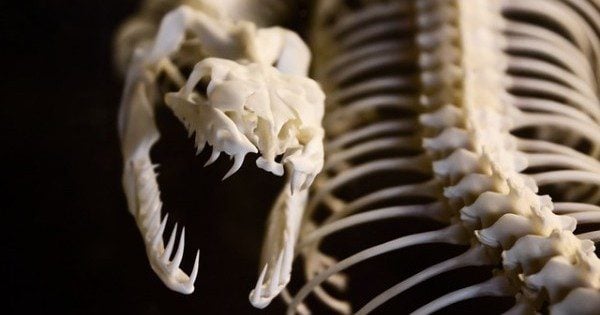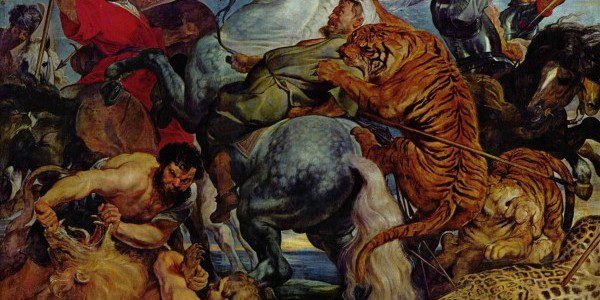Who did Paul think wrecked creation?

In Romans 8:20 Paul uses a curious phrase: “ for the creation was subjected to futility, not of its own will but by the will of the one who subjected it, in hope that the creation itself will be set free from its bondage to decay and will obtain the freedom of the glory of the children of God”
The verse–and surrounding passage–contains some perplexing ambiguities and interpretive questions.
The most interesting one is this: By whose “will” was creation “subjected to futility”? Who was the agent who disrupted the natural world–who diminished the glory of creation and who subjected it to “decay”?
For Paul, “creation” itself wasn’t responsible–since it’s the passive recipient of the agent’s action.
Was it Adam (and Eve)?
Was it God?
Was it Christ?
Was it Satan?
Most commentators conclude that God is the natural referent here; God is responsible for subjecting creation to futility. God had a purpose in doing so, and (only) God can do so “in hope” that creation will also eventually be set free from that same bondage.
The implicit background here is the story of the disobedience of Adam and Eve (Gen. 3), where God punishes them by cursing the ground and making childbirth a painful endeavor.
Connecting the “subjection to futility” to the Genesis story makes sense in the context of Romans: Paul refers to Adam’s disobedience earlier (chp. 5) and notes the consequence of disobedience was death.
Paul assumes the reader will naturally make that connection and understand that “the one who subjected” creation to futility is God, who did so in response to the sins of the first humans in the Garden of Eden.
But the God who subjected creation does so “in hope,” knowing that decay, frustration, and death do not have the last word.
As Joseph Fitzmyer puts it: “Paul would be saying that God, though he cursed the ground because of Adam’s sin, still gave it a hope of sharing in human redemption or liberation.” (Romans: The Anchor Bible Commentary, p. 508).
I agree that, in this passage, God must be the one who subjected creation to futility. It’d be strange to think of Satan subjecting creation…in hope that it will be set free from its bondage…!
But let’s step out of the passage and the first-century for a moment.
I don’t believe in a literal Adam and Eve and a Garden of Eden. I accept the scientific consensus regarding the story of origins and the age of the natural world (16+ billion year old universe, a 4+ billion year old earth,). The story of evolution tells us that 98% of all species who have ever lived are now extinct. Death (and “bondage to decay”) entered the picture long before the first humans did.
But what’s fascinating about this Romans passage is how coherently it actually fits the story of evolution, from a theistic evolutionary viewpoint. If you take the mythical “fall” of Adam and Eve out of the picture, you’ve basically got a story of a Creator God who “subjects” creation to futility and to some kind of bondage (to “decay”), but who does so knowing that it’s not forever and that it’s not irreversible. The pain is not forever. The decay is not forever. Death is not forever.
Christopher Southgate makes this connection beautifully in his book, The Groaning of Creation: God, Evolution, and the Problem of Evil.
He admits that Paul would have known nothing about evolution, and would likely have believed in a historical Adam and Eve. Nonetheless, constructive theological connections can be drawn here for our context. As he puts it,
I would see the “futility” to which God subjected creation as the futility of the evolutionary process. In such a process there is “a time for every matter under heaven; a time to be born, and a time to die…there is…great value generated within this “futile” cycle of birth and death (94).
And then he concludes his (admittedly speculative” reading of Romans 8:
I propose, then, that the evolutionary struggle of creation can be read as being the “travail” to which God subjected creation in hope that the values of complex life, and ultimately freely choosing creatures such as ourselves, would emerge. It is, as Paul’s language hints, a struggle that gives birth. It is a struggle in which humans and the nonhuman creation groan together, in which humans share by hard work in giving birth to new possibilities of life.
Now for an additional spin:
Fitzmyer suggests that humans can also be seen as contributing to the “futility,” or “chaos, decay, and corruption” of creation. As says, “Paul speaks of ‘corruption’ even though he did not have in mind what modern industry and technology have done and are doing to the universe and Earth’s ozone layer. Yet his words somehow ring true even in this century with its ecological concerns” (507).
Here’s a way to link God and humans together as both contributing to the “subjection to futility” and the “bondage to decay in the context of our evolutionary story–and current ecological crisis.
God subjects creation to futility by creating. God gives immense freedom and responsibility to creation in “letting it be.” But creation emerges with freedom “in hope” that the processes of decay and death don’t have the last word.
Humans, on the other hand, subject creation to futility and decay by actively or passively contributing to the deterioration of the earth–of the planet. Rather than “cultivate” the earth in accordance with the divine creation mandate, humans so often wreck it, subjecting it to deterioration and to even more death.
Paul brings the plight of humans together with the plight of all creation in this passage; and connects the fate of both together.
Ultimately the hope of creation and of human beings is sourced in the love of the Creator, who alone can finally heal creation’s wounds.










